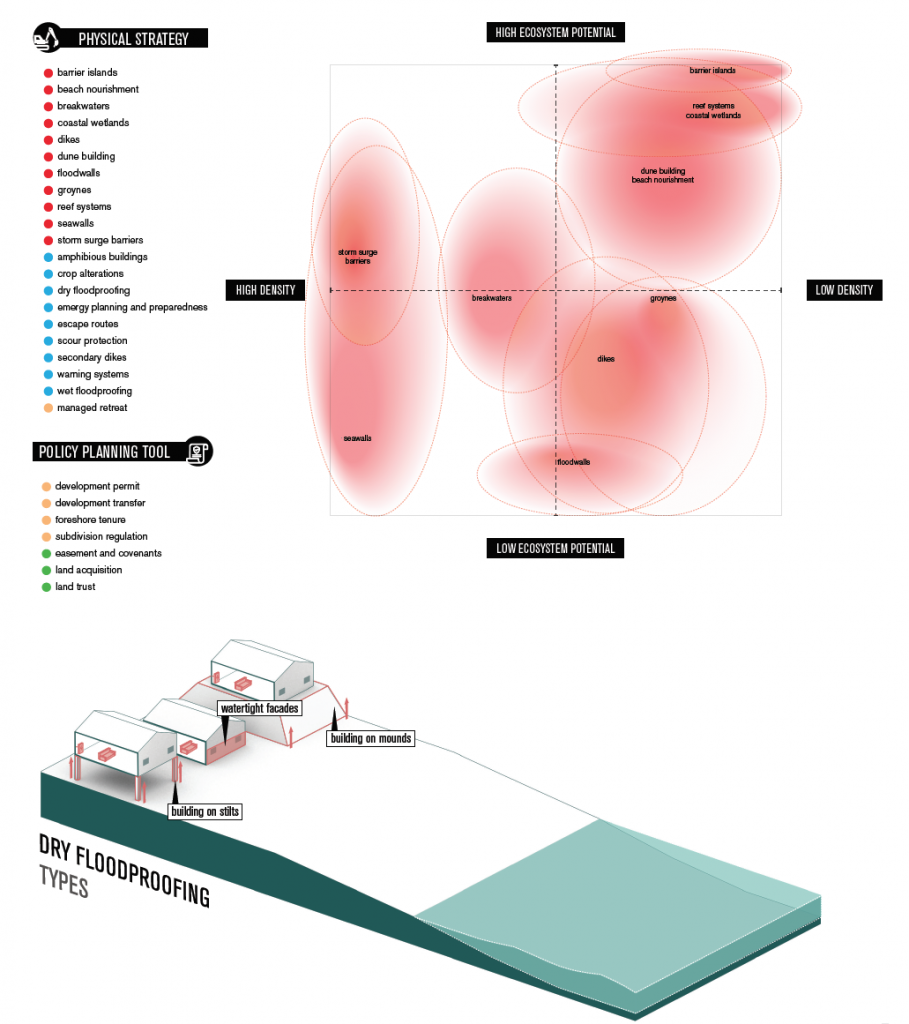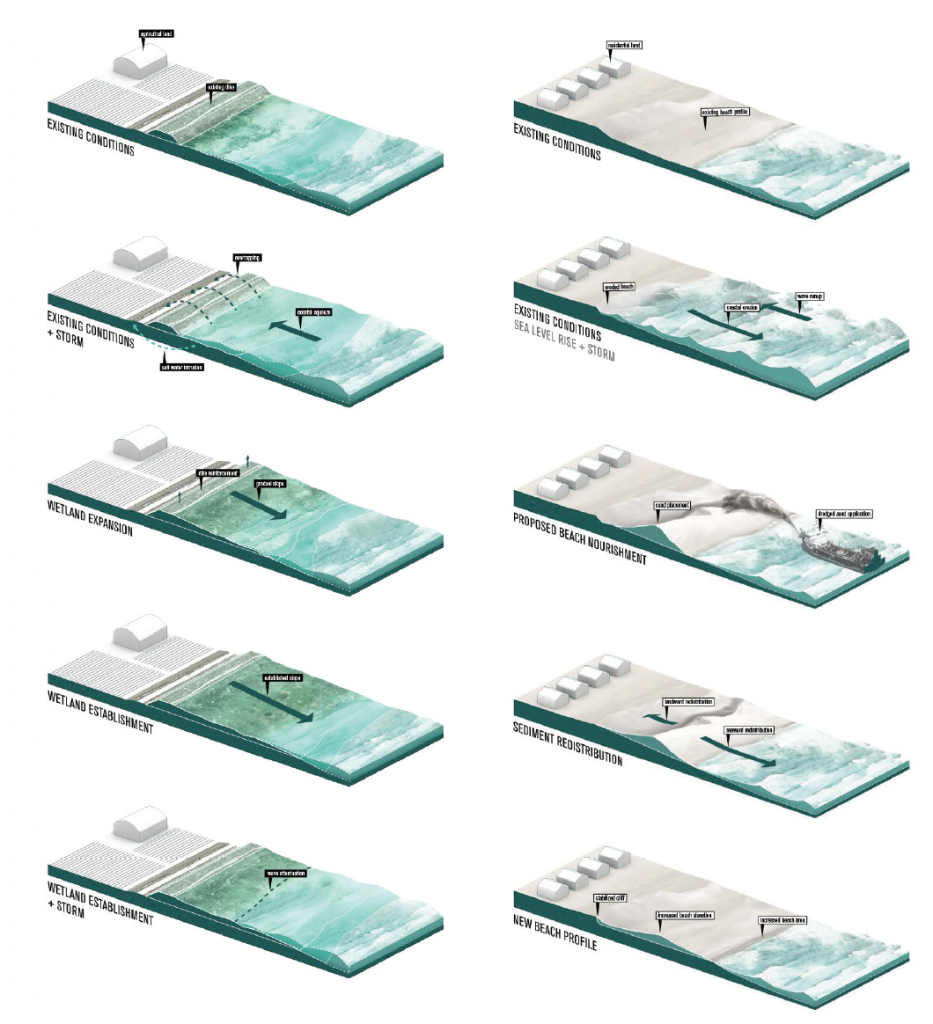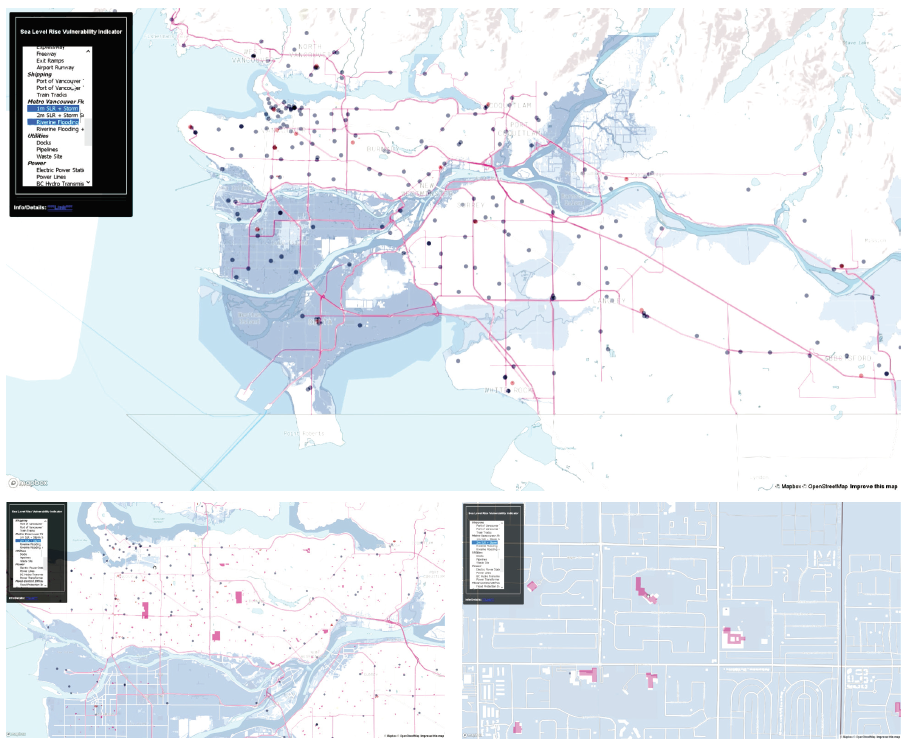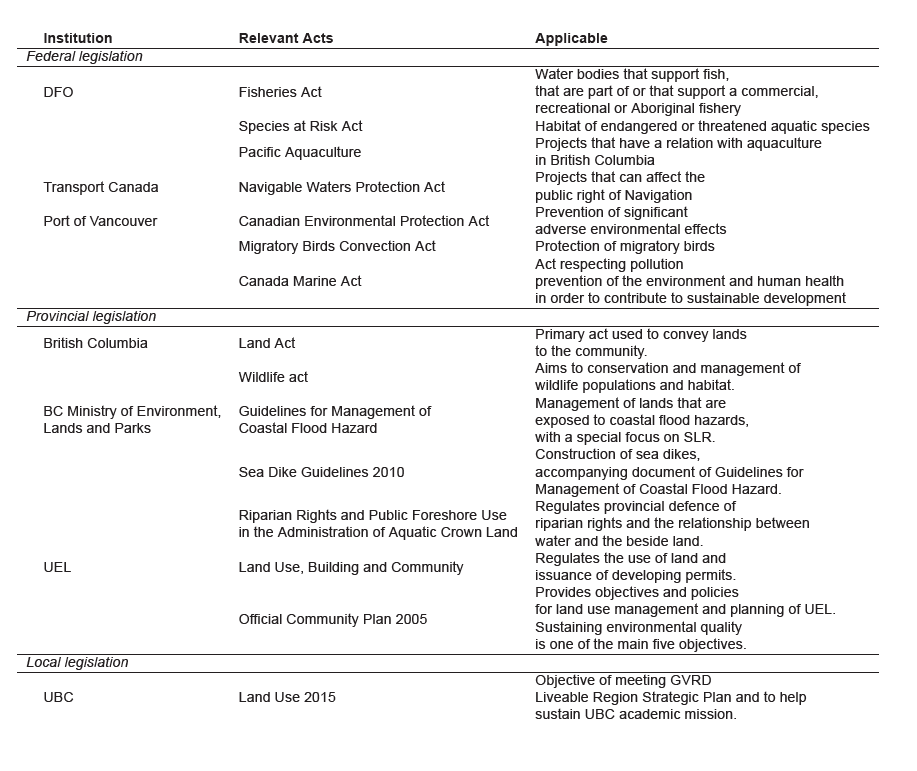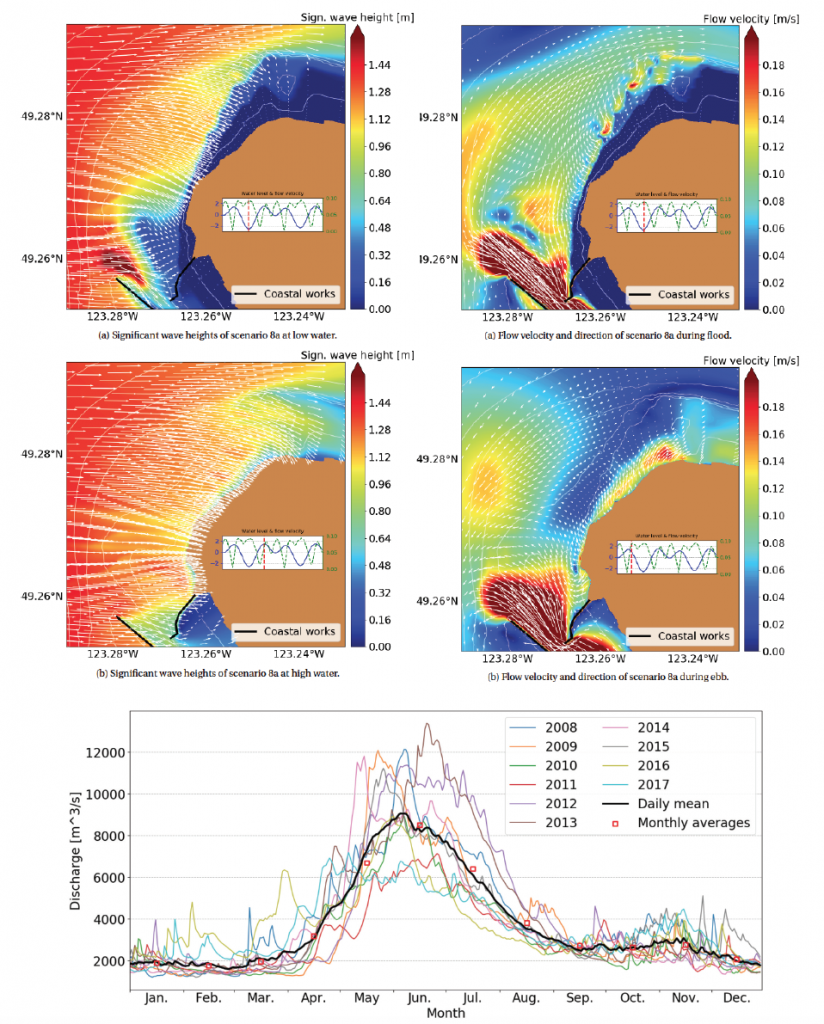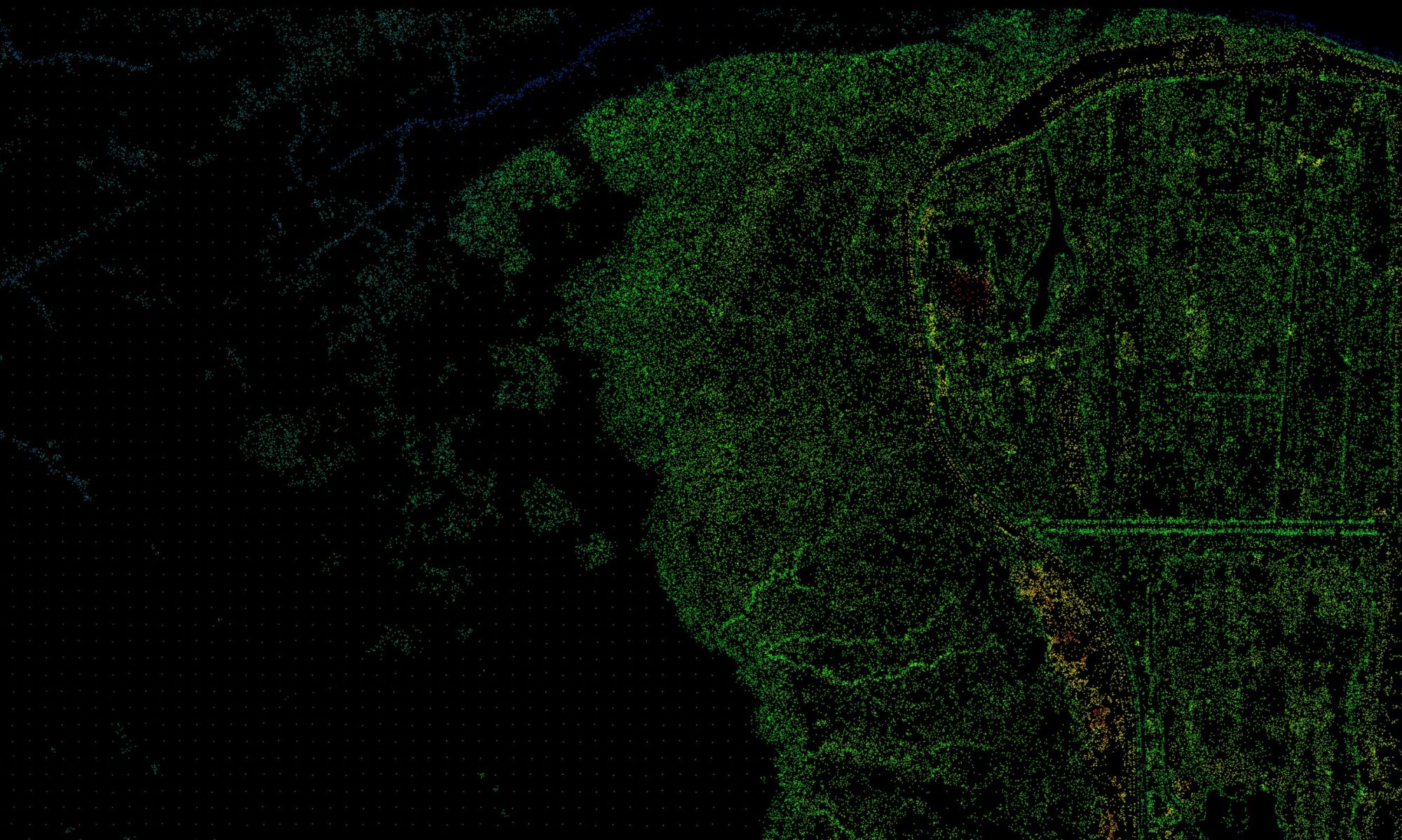Coastal erosion is a growing challenge across Canada, which boasts the longest coastline in the world. Rising sea levels and increased frequency and severity of extreme weather events due to climate change, damage coastal buildings, infrastructures, and beaches, effecting municipalities, First Nations, and Provincial and Federal governments. Climate change and its associated impacts demand new adaptation strategies to protect and enhance 243,042 km of coastline in Canada. Conventional “hard” infrastructure solutions, including seawalls, groins and jetties, typically address erosion at the expense of health, productivity, and marine habitat, adversely effecting sedimentation patterns and marine species. Other “soft” solutions, such as beach nourishment are expensive and require continuous re-application of sand. In contrast to these conventional methods, this research, entitled “Living Breakwaters”, develops a layered, transdisciplinary approach to coastal adaptation that incorporates living systems, enhancing local and regional ecosystems and spatial quality and while reducing risks and vulnerabilities to erosion caused by climate change.
The Living Breakwaters Projects engages a multidisciplinary team of accomplished academics from diverse fields including planners, designers, and marine biologists. The academic team is working in collaboration with local and provincial governments, utility providers, coastal engineers, residents and other stakeholders to envision coastal resilience strategies that create co-benefits and serve multiple constituencies. Drawing on global case study research to identify the leading contemporary alternative erosion mitigation strategies, the project is currently testing alternative soft adaptation options at a prominent coastal site adjacent to the UBC Point Grey campus that is currently experiencing significant erosion. Implementation of adaptation solutions will involve engagement with multiple stakeholders, including Metro Vancouver, The Ministry of Transportation, Oceans and Fisheries Canada, as well as residents and local community groups.
Living Breakwaters is at once broad and specific in its approach to coastal resilience. Within this multi-scale and multi-sectoral approach, the research has three main objectives: (i) to assess and visualize the multidimensional challenges (geographic, jurisdictional and operational) of coastal erosion; (ii) to develop a planning toolkit focusing on cost-effective ecological infrastructures with co-benefits, and; (iii) to apply the toolkit to a local case study in order to test, model and simulate the effectiveness of a range of alternative coastal adaptation options.
Outcomes of this project will include: (i) an integrated model of collaboration between academia, stakeholders, and local and regional governments to promote coastal adaptation; (ii) documentation of national and international case studies to identify the multiplicity of risks and vulnerabilities related to coastal erosion as well as emerging, alternative adaptation solutions; (iii) the development of a planning toolkit that jurisdictions can reference as a guide to support the planning in anticipation of climate related impacts related to coastal erosion; (iv) development of coastal models (hydraulic and marine habitat), and; (v) widespread access to data, information, and visualization (2D/3D imagery) generated as part of the local case study that will be shared with a broad audience.
Funding: Natural Resources Canada—Climate Change Adaptation Program
Project Team
Doug Doyle, UBC Campus and Community Planning
David Gill, Program and Policy Planner, UBC SEEDS Program
Sara Muir-Owen, Pacific Institute for Climate Solutions (PICS)
Nina Hewitt, UBC Department of Geography
Joe Dahmen, UBC School of Architecture and Landscape Architecture
Tugce Conger, City of Vancouver, Green Infrastructure
Research Assistants
Benham Harper, UBC School of Architecture and Landscape Architecture
Clavin Tan, UBC School of Architecture and Landscape Architecture
Karen Tomkins, UBC School of Architecture and Landscape Architecture
Rens Harteveld, TU Delft Coastal Engineering
Tessa Jonker, TU Delft Civil Engineering and Geosciences
Laurie van Gijzen, TU Delft Civil Engineering and Geosciences
Camilla Gaido, TU Delft Civil Engineering and Geosciences
Irene Cantoni, TU Delft Civil Engineering and Geosciences
Collaborators
Metro Vancouver, regional Parks—West
